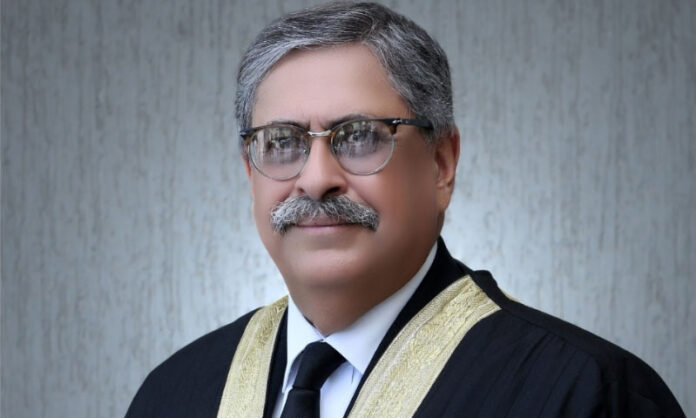ISLAMABAD: The Islamabad High Court (IHC) on Monday dismissed the petition filed by the petitioner for investigation into the threatening letter as inadmissible and imposed a fine of Rs100,000 on the petitioner.
Islamabad High Court Chief Justice Athar Minallah issued a five-page written decision.
Also Read:
Opposition does not have the mandate of people: Qureshi
PTI’s 95pc members opposed resignation fron NA: Ali Muhammad Khan
The court said that it was satisfied that the frivolous petition was an attempt to make the diplomatic cable controversial.
The statement further said that it is the responsibility of every citizen not to politicize sensitive issues of national security and not to create a sensation.
The petition also sought inclusion of former prime minister Imran Khan’s name in the ECL and prosecution for serious treason. The petitioner referred to former president General (retd) Pervez Musharraf and the Chief Justice had remarked that Imran Khan was the elected prime minister. He should not be compared with Pervez Musharraf.
Chief Justice Athar Minallah had heard the petition of Maulvi Iqbal Haider, the petitioner. Maulvi Iqbal Haider said that relations with the United States were damaged and an inquiry should be ordered into the matter. The Home Secretary should investigate the alleged threatening letter used to overthrow Imran Khan’s government.
It was the responsibility of the federation to investigate the matter and take the matter to the International Court of Justice. The names of Imran Khan, Fawad Chaudhry, Shah Mehmood Qureshi, Deputy Speaker Qasim Suri and former Pakistani Ambassador to the US Asad Majeed should also be included in the ECL.
Last month, the Islamabad High Court (IHC) had barred former prime minister Imran Khan from releasing classified documents.
Islamabad High Court Chief Justice Athar Minallah issued a written order on the petition of a citizen. The high court in a written order referred to the oath of office of the Prime Minister and said that it was hoped that the prime minister would not violate his oath.





